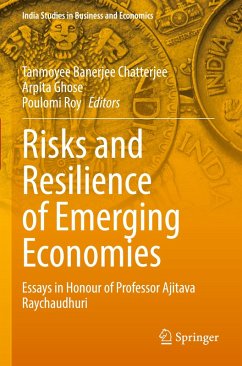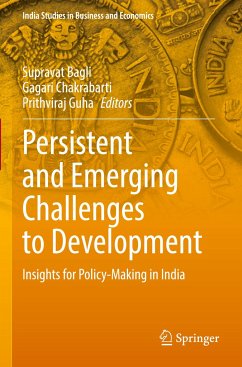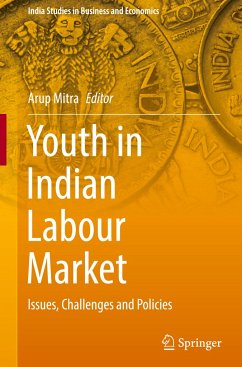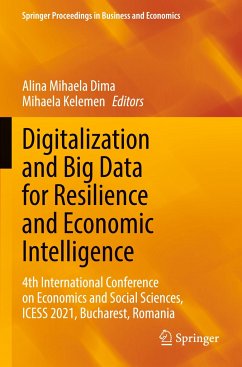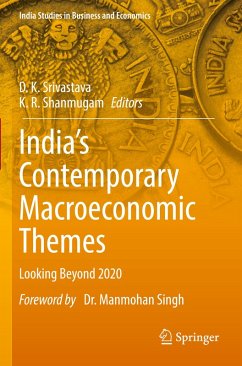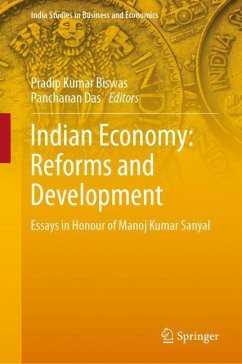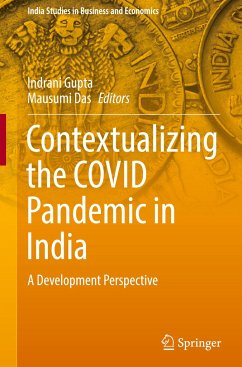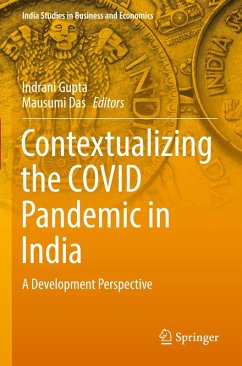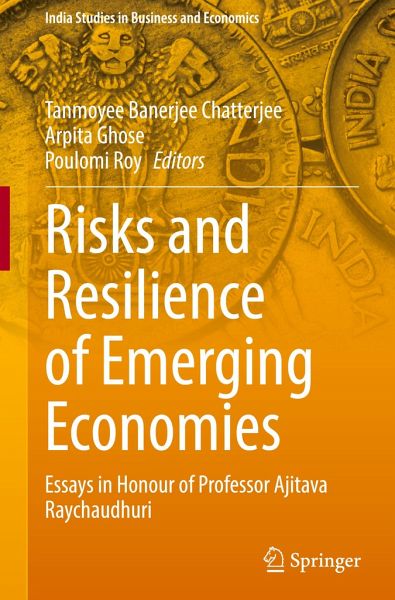
Risks and Resilience of Emerging Economies
Essays in Honour of Professor Ajitava Raychaudhuri
Herausgegeben: Chatterjee, Tanmoyee Banerjee; Ghose, Arpita; Roy, Poulomi

PAYBACK Punkte
65 °P sammeln!
This book is an innovative exercise to unravel recent advances in development fundamentals in emerging economies through Indian lens that include various aspects of macroeconomics, international trade, finance, and issues connected to social sector that have become more important in post-pandemic world. The book throws light on efficacy of existing policies and need of reform in policy framework to enhance growth and development and reduce gender disparities in the context of India and other emerging economies. The papers included in different chapters use frontline techniques to discuss vario...
This book is an innovative exercise to unravel recent advances in development fundamentals in emerging economies through Indian lens that include various aspects of macroeconomics, international trade, finance, and issues connected to social sector that have become more important in post-pandemic world. The book throws light on efficacy of existing policies and need of reform in policy framework to enhance growth and development and reduce gender disparities in the context of India and other emerging economies. The papers included in different chapters use frontline techniques to discuss various issues that in turn will be of great help for graduate and postgraduate teaching as well as for research. The book substantially contributes to the growing literature on issues relating trade, development, finance, and social sector in light of threat posed by COVID-19 pandemic in emerging market economies and extends the frontiers of knowledge.





